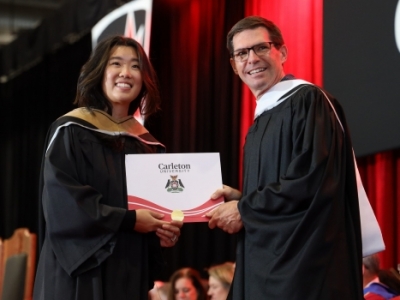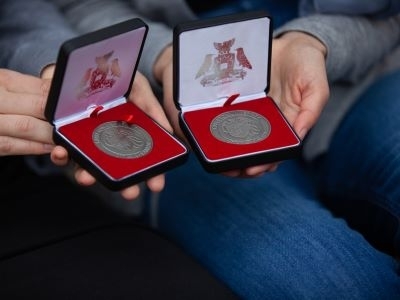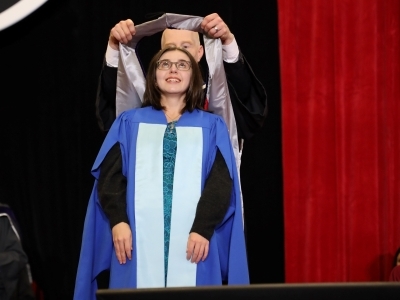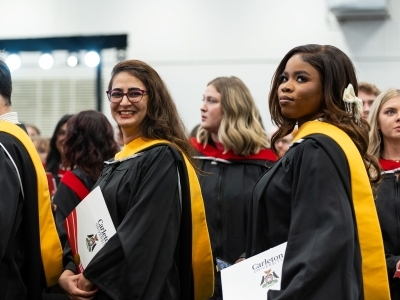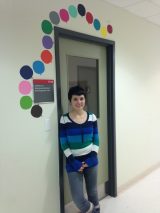 Do children lie?
Do children lie?
Carleton doctoral candidate Corrie Vendetti decided to research this question with a group of four- and five-year-olds for her PhD dissertation in Psychology.
“I told children stories about characters who told lies or the truth (e.g. denying having cheated at a game, or pretending to like a disappointing present etc.) and asked them whether the characters told lies or truths, whether what the characters said was good or bad, and whether they should get in trouble for saying what they said,” explains Vendetti.
She also did a second study that created situations in which children played games in which they had an opportunity to lie.
In one of the games, children could ‘cheat’ by peeking during a guessing game. Vendetti wanted to see if they would tell her what researchers call “a self-serving lie” – those told to cover up minor misdeeds.
In another game, children were told that they were going to win a really cool prize – and once they won the prize and unwrapped it, they found it was an ordinary, boring bar of soap. Vendetti then asked them if they liked it and what they liked about it to see if they would tell a “prosocial lie”. These are lies that are told to spare someone else’s feelings.
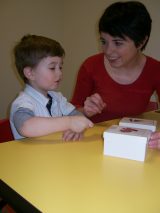 Vendetti says that she found that children begin to identify/recognize lies told by others around the age of four and that they become sensitive to the moral implications of lying in different situations around the age of five.
Vendetti says that she found that children begin to identify/recognize lies told by others around the age of four and that they become sensitive to the moral implications of lying in different situations around the age of five.
“Five-year-olds in my study considered it worse to tell both kinds of lies (self-serving and prosocial) than to tell the truth in those situations. What’s interesting though, is that five-year-olds also considered self-serving lies to be worse than prosocial ones. So though it is wrong to lie in any situation, it is less wrong to lie if you are doing it to spare someone’s feelings.”
She also found that, if a child told one kind of lie, they were likely to tell the other. “This suggests that similar skills are likely involved in both kinds of lying,” says Vendetti.
For parents, Vendetti says that several researchers have shown that asking children to promise to tell the truth can significantly reduce their likelihood of telling lies and also that emphasizing the value and importance of telling the truth increases children’s truthful responses, rather than emphasizing the negative consequences of telling lies.
One of the children’s mothers who was involved in Vendetti’s study wrote this blog about her child’s experience.
Vendetti emphasizes that a lot of the research on children’s understanding of lies has been done to show that young children can be competent witnesses in court – and that they have a pretty good understanding of the differences between truths and lies and the importance of being truthful.
Funding support for her research came from the PD McCormack Fund, Academic Excellence Scholarships and from financial support through her supervisor’s grants (NSERC and a Junior Faculty Research Award). A CFI/OIT grant enabled the construction of the Children’s Representational Development Lab at Carleton which allowed Vendetti to conduct on-campus testing with children.
She said Deepthi Kamawar has been an excellent thesis supervisor. “Deepthi is not only a meticulous and careful scientist, skilled at framing research questions and designing experiments to get at the crux of a question and answer it, but she is also a compassionate and enthusiastic person. These qualities are a very rare combination and they will always inspire me to keep doing what I love.”
She completed both her MA and PhD working with Dr. Kamawar in the Children’s Representational Development Lab. Her Master’s thesis was recognized with an Outstanding Thesis Award from the Canadian Psychological Association (CPA). Only one is given per department, per year. Vendetti recently successfully defended her PhD thesis and will graduate in February.
Perhaps another legacy for Corrie Vendetti at Carleton is what some of her thesis committee dubbed “the Corrie Effect”.
She explains: “Unexpectedly, far fewer children peeked during the guessing game or expressed disappointment with the soap that they won than I was expecting (and that previous research has reported). During my defence, one of my committee members suggested that the children didn’t want to peek or admit that they disliked the soap because we were such good friends. By the end of my defence, the entire committee was joking and talking about “the Corrie Effect” as if it was a well-known scientific phenomenon!”
